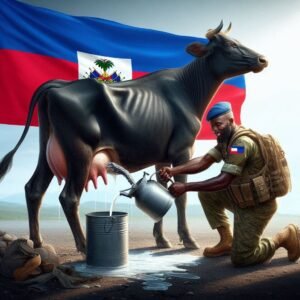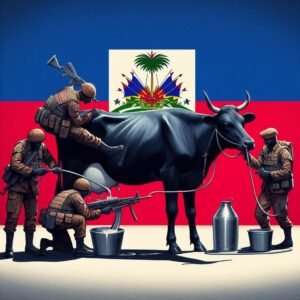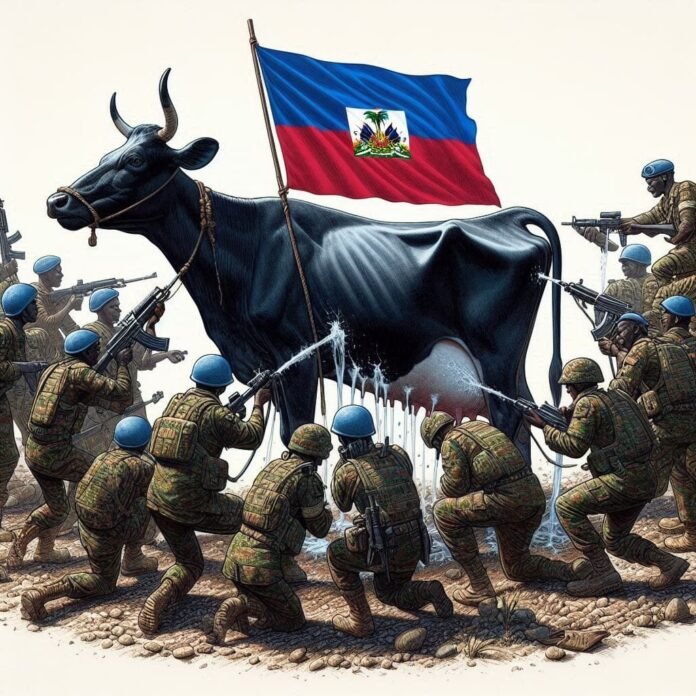Haiti, a nation rich in natural resources and resilience, has become a coveted prize for foreign powers. For decades, these powers have exploited Haiti’s resources, leaving the country struggling to survive. This exploitative relationship resembles a prized cow being milked dry by multiple farmers without care.
The Haitian people, rightful owners of this “cow,” have been unable to reap benefits from their resources. Foreign powers, posing as benevolent helpers, exploit Haiti’s vulnerability, perpetuating a vicious cycle of exploitation.

Notable exploiters include the United States, France, and Canada. They extract gold, copper, and other valuable resources without providing meaningful assistance. These nations justify their actions as “humanitarian aid” or “investment,” but their true intentions are self-serving.
Haiti’s oil reserves, estimated to be worth billions, are being extracted without adequate compensation. Foreign powers turn a blind eye to human rights abuses in Haiti, including sexual exploitation, violence, and forced displacement.
The United Nations’ decision to send soldiers to Haiti raises concerns. Kenya, a developing African country, leads the effort, potentially for geopolitical gain. Analysts suggest leading the mission could provide specialized training and equipment, as well as financial incentives (The Haitian Times).

The Kenyan parliament’s requirement of $241.4 million to prepare 1,000 officers for deployment raises eyebrows (Global Policy Forum). The presence of Kenyan soldiers, alongside those from Jamaica, the Bahamas, and Antigua and Barbuda, raises questions.
What’s their real motive? Is it genuine help or another example of nations exploiting Haiti’s resources and vulnerability? The UN Security Council’s endorsement despite Russia and China’s reservations only adds to concerns.
Haiti is not “la vache qui rit” (the laughing cow) but a nation suffering centuries of abuse. It’s time for the international community to recognize Haiti’s value beyond resources and treat it with dignity.
Haiti is a sovereign nation deserving respect, dignity, and self-determination. As the international community reflects on Haiti’s plight, it is imperative to shift from exploitation to genuine support.
Haiti’s future depends on recognizing its inherent value and harnessing its resources for the benefit of its people. Only through self-determination and equitable partnerships can Haiti break free from exploitation and forge a path toward prosperity and dignity.

References:
¹ “UN Mission in Haiti” (The Haitian Times)
² “Kenya’s Deployment in Haiti” (Global Policy Forum)
Samuel Georges




